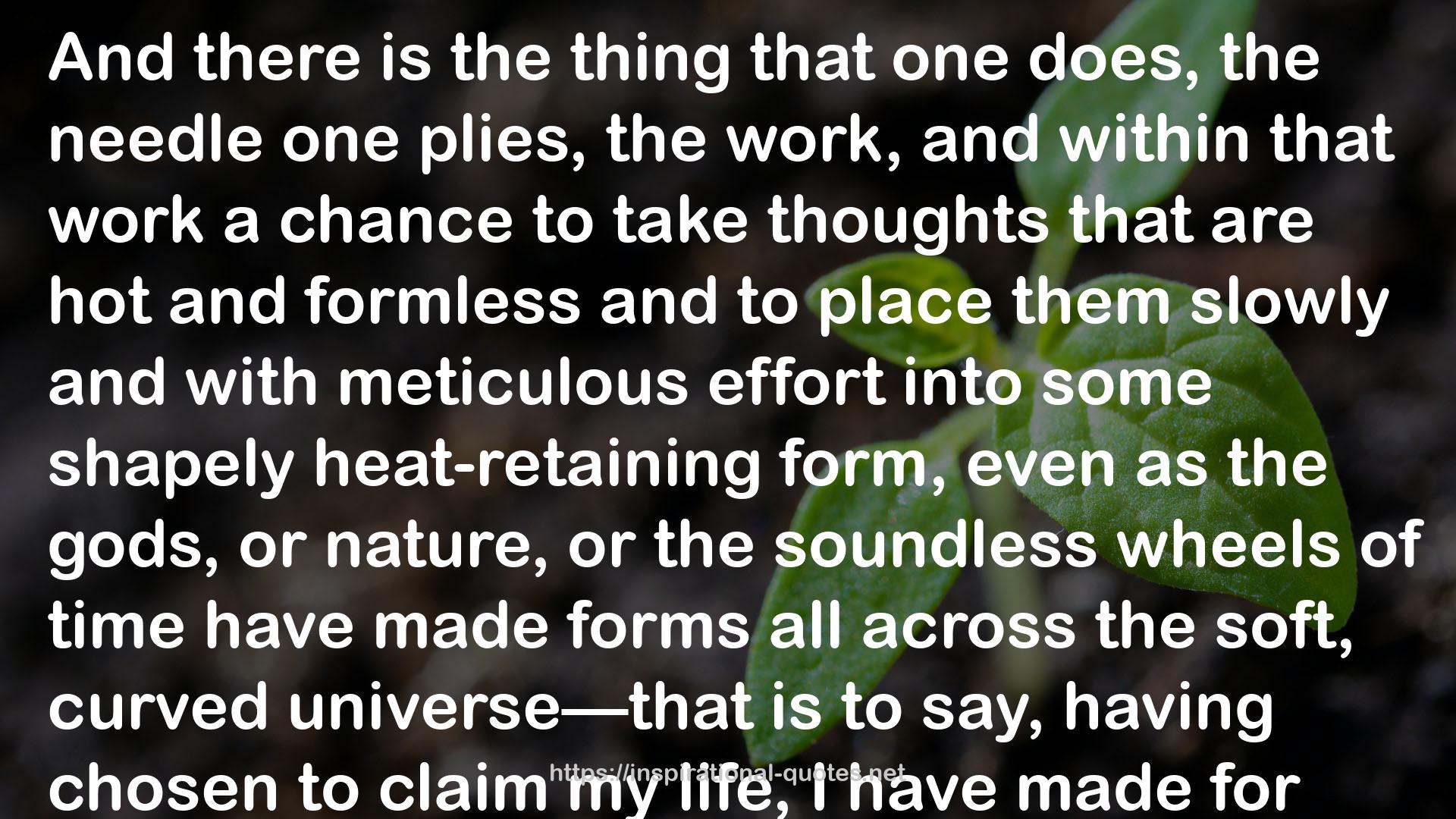101
" And there is the thing that one does, the needle one plies, the work, and within that work a chance to take thoughts that are hot and formless and to place them slowly and with meticulous effort into some shapely heat-retaining form, even as the gods, or nature, or the soundless wheels of time have made forms all across the soft, curved universe—that is to say, having chosen to claim my life, I have made for myself, out of work and love, a handsome life. "
― Mary Oliver , Upstream: Selected Essays
109
" I am, myself, three selves at least. To begin with, there is the child I was. Certainly I am not that child anymore. yet, distantly, or sometimes not so distantly, I can hear that child's voice - I can feel its hope, or its distress. It has not vanished. Powerful, egotistical, insinuating - its presence rises, in memory, or from the steamy river of dreams. It is not gone, not by a long shot. It is with me in the present hour. It will be with me in the grave.
And there is the attentive, social self. This is the smile and the doorkeeper. This is the portion that winds the clock, that steers through the dailiness of life, that keeps in mind appointments that must be made, and then met. It is fettered to a thousand notions of obligation. It moves across the hours of the day as though the movement itself were the whole task. Whether it gathers as it goes some branch of wisdom or delight, or nothing at all, is a matter with which it is hardly concerned. What this self hears night and day, what it loves beyond all other songs, is the endless springing forward of the clock, those measures strict and vivacious, and full of certainty.
The clock! That twelve-figured mon skull, that white spider belly! How serenely the hands move with their filigree pointers, and how steadily! Twelve hours, and twelve hours, and begin again! Eat, speak, sleep, cross a street, wash a dish! The clock is still ticking. All its vistas are just so broad - are regular. (Notice that word.) Every day, twelve little bins in which to order disorderly life, and even more disorderly thought. The town's clock cries out, and the face on every wrist hums or shines; the world keeps pace with itself. Another day is passing, a regular and ordinary day. (Notice that world also.)
[ ... ]
And this is also true. In creative work - creative work of all kinds - those who are the world's working artists are not trying to help the world go around, but forward. Which is something altogether different from the ordinary. Such work does not refute the ordinary. It is, simply, something else. Its labor requires a different outlook - a different set of priorities. Certainly there is within each of us a self that is neither a child, nor a servant of the hours. It is a third self, occasional in some of us, tyrant in others. This self is out of love with the ordinary; it is out of love with time. It has a hunger for eternity. "
― Mary Oliver , Upstream: Selected Essays
112
" But there is, also, the summoning world, the admirable energies of the world, better than anger, better than bitterness and, because more interesting, more alle viating. And there is the thing that one does, the needle one plies, the work, and within that work a chance to take thoughts that are hot and formless and to place them slowly and with meticulous effort into some shapely heat-retaining form, even as the gods, or nature, or the soundless wheels of time have made forms all across the soft, curved universe-that is to say, having chosen to claim my life, I have made for myself, out of work and love, a handsome life. "
― Mary Oliver , Upstream: Selected Essays

